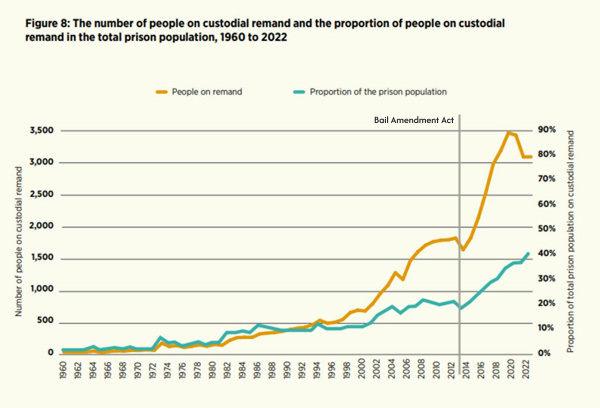In 2011, teenager Christie Marceau was tragically murdered by Akshay Chand, who had been released on bail by Judge David McNaughton after Chand had previously threatened to kill and sexually violate Christie.
While on bail, Chand turned up at Christie’s family home forcing his way inside, chasing Christie and stabbing her repeatedly. Christie died in her mother’s arms.
The Sensible Sentencing Trust considered the circumstances of Christie’s murder an egregious example of failure both by the Judiciary - who all too often bailed high risk and serious offenders, and the Bail Act, which heavily favoured the rights of the accused over the safety of victims and the public generally.

Christie’s case was just one of many truly shocking examples of a weak Bail Act and poor Judicial decision making. Other recent examples of other victims murdered by an offender on bail included:

Augustine Borrell
Working alongside Christie’s family, the Sensible Sentencing Trust ran a high-profile and persistent campaign encouraging the Government to strengthen the Bail Act and improve judicial accountability. This campaign was only possible with the generous support of thousands of New Zealanders who chipped in to help.
This campaign was highly successful, with a significantly strengthened Bail Amendment Bill passed by Parliament in 2013 (“New Bail law WILL save lives” | Scoop News) which included:
Stricter bail decisions thanks to 'Christie's Law' - NZ Herald
Prior to the changes it was all to common for innocent victims to be needlessly killed or seriously harmed by offenders on bail. In 5 years prior to the changes, 23 people were convicted of murder while on bail and another 21 were convicted of “homicide-related” offences committed while on bail – which includes manslaughter, attempted murder and driving causing death Murder while on bail - 23 cases - NZ Herald
Following the changes, the remand prison population increased significantly. This was a direct result of the tighter criteria the amended Bail Act required in respect of considering whether a person accused of serious offending should be released on bail or held in custody (‘remand’).

The Bail Act remains far from perfect but is much improved with a greater focus on the safety of potential victims and the public generally.
Unfortunately, and despite the evidence to the contrary, some politicians want to loosen the Bail Act and let many more dangerous criminals back out onto the streets to create more victims. Labour weakness on bail law a dangerous back-flip - McVicar | Scoop News